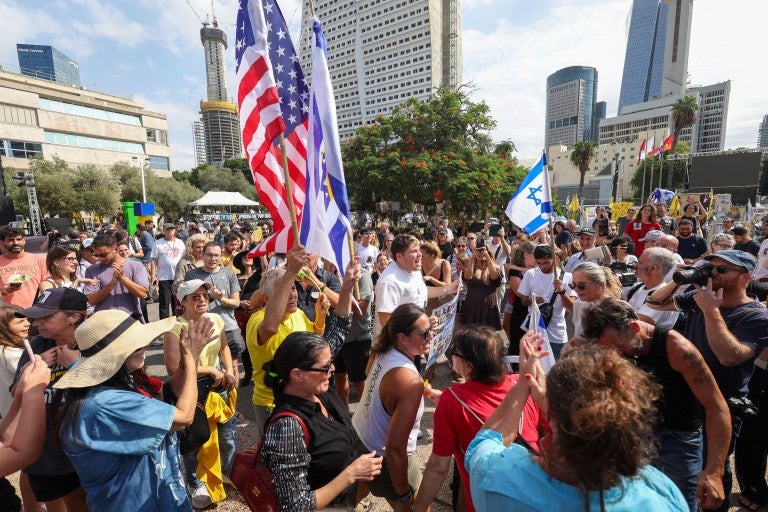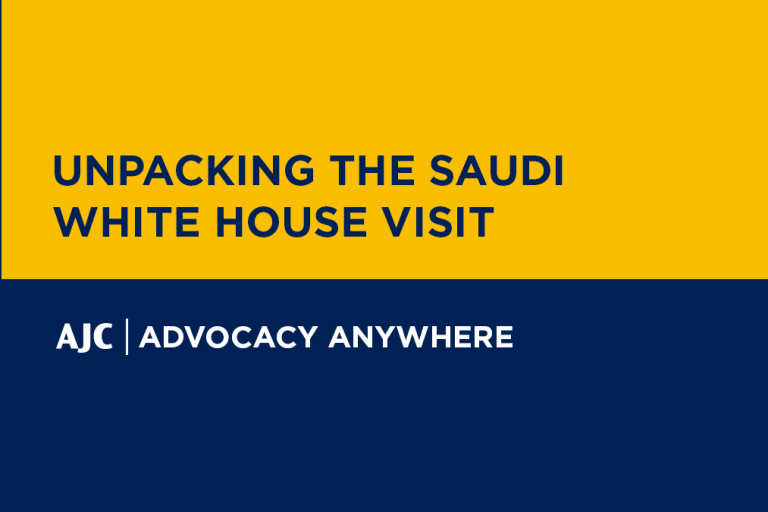February 22, 2024
This piece originally appeared in the New York Daily News.
Ominous headlines about the Israel-Hamas war, antisemitic condemnations from world leaders and South Africa’s outrageous genocide allegations before the International Court of Justice could easily lead one to believe that Israel is isolated on the world stage.
Far from cutting off relations, however, countries in East Asia and Europe are expanding partnerships with Israel — a world leader in agriculture, medicine, and high tech that respects free enterprise and upholds the rule of law.
Japan and South Korea have notably broadened and deepened their relationships with Israel over the past decade.
After Japan was hit by the Great East Japan Earthquake, tsunami, and nuclear disaster in 2011, Israel was the first country to dispatch medical teams. In 2018, the two countries signed a cybersecurity accord, and they recently opened preliminary discussions toward a free trade agreement. Just this month, humanitarian aid from Israel arrived in Japan for the victims of last month’s Noto earthquake.
Israel and the Republic of Korea signed a free trade agreement in 2021, followed by an accord on cybersecurity cooperation in 2023. This burgeoning relationship is not limited to official channels; more than 60,000 Korean tourists visit Israel every year.
To understand these dynamics, look at these nations’ shared values: Japan, South Korea, and Israel are connected by their democratic values, dynamic human capital, investment in tech, and close relationships with the United States. This was evident in the statements of support that both Tokyo and Seoul issued in the wake of the Oct. 7 Hamas terrorist attack against Israel.
This month, I traveled to Japan and South Korea with American Jewish Committee (AJC) colleagues to encourage the remarkable momentum in Japanese and South Korean ties with Israel. Officials from both nations expressed optimism for these relationships, especially as we look to the region after the Israel-Hamas war.
The opportunities are easy to see.
Japan and South Korea are committed to a U.S.-led, pro-democracy world order, in which Israel is a clear and necessary partner. The emerging alliances of China, Russia, Iran, and North Korea set off alarm bells in Tokyo and Seoul just as they do in Jerusalem.
During our discussions, top-level government representatives from Japan and South Korea conveyed their condolences regarding the Oct. 7 attack. Officials and analysts in both nations recognized the interconnected nature of global crises; Russia’s illegal invasion of Ukraine, North Korea’s belligerence, Chinese threats against Taiwan, and in the Middle East, Hamas and other terror groups’ alliances with Iran.
Bolstering the relationships between Japan and South Korea, the key democracies of East Asia, and Israel, the sole democracy in the Middle East, is crucial not only to foster an exchange of ideas but to counter the malevolent designs of increasingly aggressive authoritarians.
And this growth is not limited to Japan and South Korea.
Western countries have also made clear that they want to boost ties with Israel.
Last month, I met with the Lithuanian, Canadian, and Czech chairs and the Spanish deputy chair of their respective parliaments’ Foreign Affairs Committees. All expressed their solidarity with and strong feelings for Israel. We also discussed the need to work more closely with Israel in the face of rising threats to democracy around the world and continue to stand in solidarity with and support the Ukrainian fight against Russian aggression.
Another encouraging sign is a powerful new idea to connect three different regions — South Asia, the Middle East, and Europe — via a railway and ports system linking India to Europe by way of the UAE, Saudi Arabia, Jordan, and Israel, where goods could be further transshipped to Europe (and vice versa). New high-speed data lines and energy links would be included in the project.
A Memorandum of Understanding about this India-Middle East-Europe Economic Corridor (IMEC) was signed this past September. The project promises to “secure regional supply chains, increase trade accessibility, improve trade facilitation, and support an increased emphasis on environmental, social, and government impacts” as well as to “increase efficiencies, reduce costs, enhance economic unity, generate jobs, and lower greenhouse gas emissions.”
The corridor would have the additional benefits of avoiding the Houthis in the Bab el-Mandeb strait entrance to the Red Sea and significantly deepen Israel’s integration into the Mediterranean, Middle East and Eurasia more broadly.
Before Oct. 7, Israel was on the verge of a more integrated future with the global community and Hamas’ efforts to disrupt this momentum will fail. Thanks to these relationships with countries in East Asia and Europe, Israel remains far from isolated at this pivotal moment.



